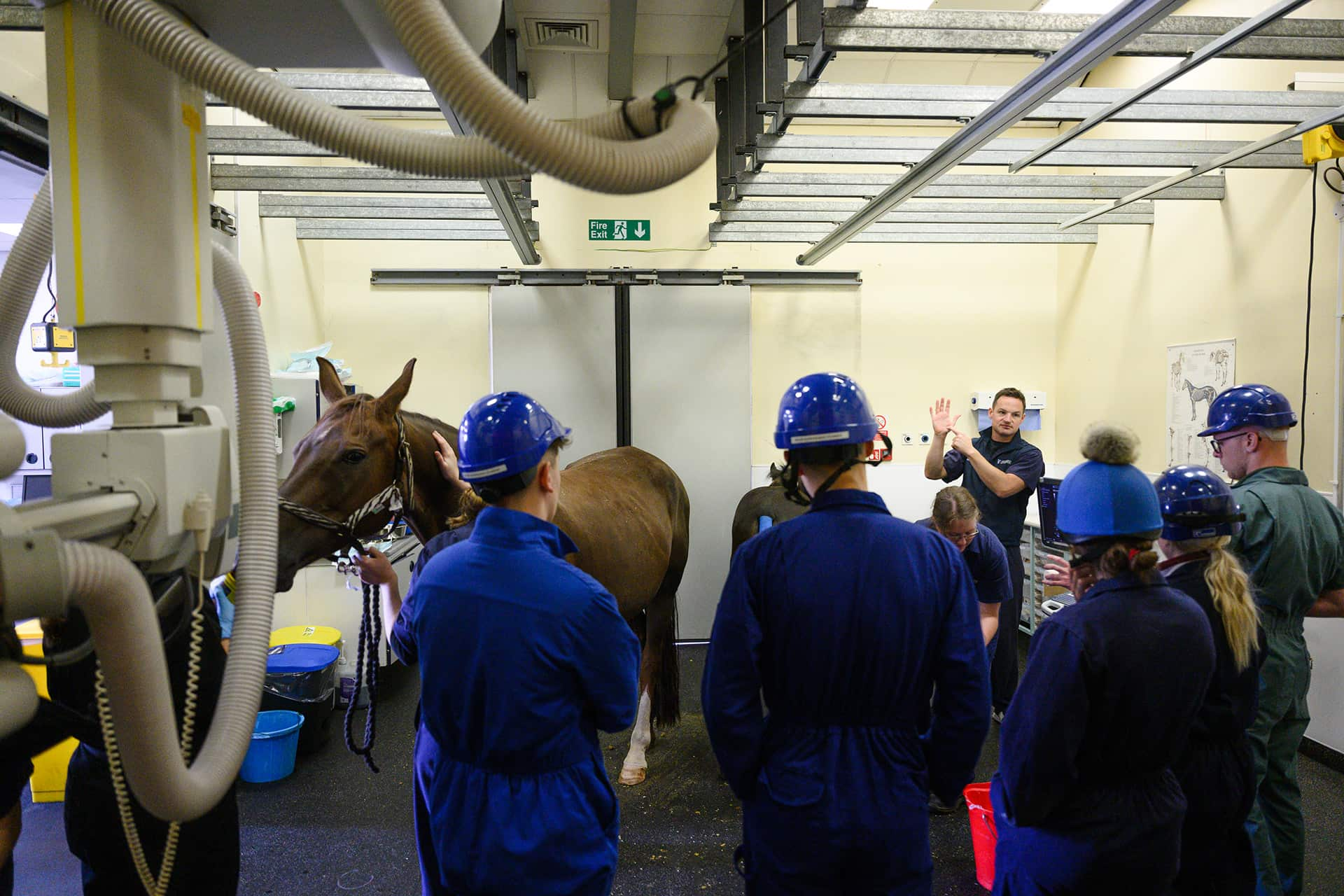Student teaching
Our Equine Hospital and Equine Practice are part of the School of Veterinary Science at the University of Liverpool. We play a key role in the education of final-year veterinary students.

Our senior vets are all members of the academic staff, are all experienced instructors and are responsible for the teaching and supervision of veterinary students alongside their duties as veterinary surgeons within the hospital and practice.
In the final (fifth) year of their degree, veterinary students undergo clinical rotations, which are blocks of clinical placements within each department of the veterinary school. The Equine Hospital is responsible for several different rotations and we have students with us for most weeks of the year.
Veterinary students from the University of Liverpool and other veterinary schools in the UK and overseas also undertake extra-mural studies (EMS) at the hospital during their clinical years as part of their training.
Student's roles and responsibilities in the equine hospital
Students in the hospital are always under the direction and supervision of qualified veterinary surgeons and are valued members of our clinical team.
Students will never perform essential techniques (day 1 competencies) alone or without the guidance of qualified veterinary surgeons. These are skills a newly qualified veterinary surgeon is expected to be able to perform and are a vital part of their veterinary training.
Advanced veterinary procedures are never performed by veterinary students and are always carried out by our hospital team of qualified, experienced veterinary surgeons.
If you have any concerns regarding students performing techniques on your horse (e.g. if your horse is very needle shy), please inform reception and the hospital clinical team during admission.
Hospital clients and veterinary students
On arrival at the hospital for routine (non-emergency) appointments, you may be introduced by a veterinary student under the direction of the veterinary clinical team. They may take a clinical history from you. Our students may also take a clinical history from clients of emergency cases while other members of the team undertake an initial assessment of your horse.
We are grateful for our clients' patience during this process as there are a lot of questions for the students to ask. Although it can be time-consuming, it is a very important skill and process for them to learn. Any constructive feedback you wish to provide to the students or the hospital team is welcome.
Thank you for helping us to train the next generation of veterinary surgeons.
Please say hello to our students when you see them!